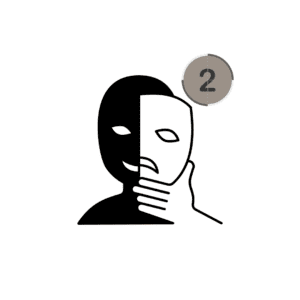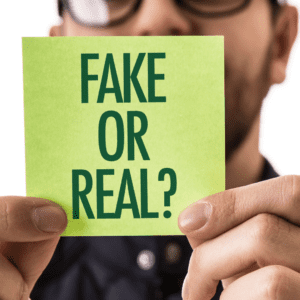Part 2: Risks around intellectual rights and consumer law
In the first part of the blog, we already addressed how deepfake can be problematic in the context of the GPDR. This is where the problems surrounding deepfake however not. In this part of the blog, we will discuss the portrait rights and copyright issues that can occur when using deepfakes.

Deepfakes: portrait rights and copyright
Your images are subject to a portrait right, this right provides and that you own your own image and that third party must obtain your express prior consent before using your image.
What about a deepfake video?
Contrary to popular belief, portrait rights are not limited to classic photographs and video.Portrait law is technology-neutral , this means it can be perfectly applied in zake around deepfake. However, this portrait right is time-limited and not absolute.
In fact, portrait rights are only valid throughout your lifetime and for up to 20 years thereafter.
Another limitation is that you can only exercise your portrait right if it is a recognizable and clear photograph or image and you are the focus of the image. Thus, if you happen to be standing in a photo pulled during a major event, you cannot exercise your portrait right.
Limits and Restrictions in the Use of Known Persons
Even if you are a public or well-known figure, your portrait rights are limited. Paparazzi may take photos of actors at events such as red carpet events at movie premieres, for example. The photographer in question may not use the photo for purposes other than reporting without permission, for example, he may not sell the photo to a company for an advertising campaign.
Now, with portrait rights in mind, what is acceptable in terms of Deepfake?
Let’s take the case of the photographer and the Advertising Campaign for a moment. The photographer will obviously not be allowed to take fake deepfake photos of a famous person and sell them to a company as if they were real photos.
Does that mean all deepfake – content should be banned?
Many defend the use of deepfake by arguing that taking the photos and videos is a form of art or expression and that its use falls under the right to freedom of expression. However, it is also not unimportant to note that some deepfakes can be very damaging to the honor and good name of certain individuals. Several years ago, for example, pornographic deepfakes were made of the actress Emma Watson.
There have even been instances of such deepfakes using the photos and videos of minors. It doesn’t have to go that far itself. If your neighbor posts a deepfake of you online tomorrow in which you make certain racist remarks, it could be life-destroying.
This while you never made the comments in question. Of course, the more realistic the deepfake the bigger this problem becomes.
From the moment that recognizing people in deepfakes affects that person’s honor and good name in such a way, we do think there is a clear portrait rights problem. The same is true when someone has a commercial portrait right over certain images.
Portrait rights must always be weighed against other fundamental rights.

Copyright
There are also some interesting legal issues in the area of copyright. After all, who is the author of the deepfake?
Creating a deepfake involves a lot of people, on the one hand there are the people who wrote the underlying algorithms and on the other hand there are the photos and videos used to train the AI, those photos and videos were also created by someone/ belong to someone else.
Finally, there is also the person who must put the algorithm to work and decide what output the AI system will have and what will now be released as artwork.
Who is the author in this situation? This is at present a discussion to which no clear answer has yet been given.
Consumer Judge
We touched on the pain point around Consumer Law earlier.
Deepfake should not be used to make commercials. This falls under misleading market practices and misleading advertising under European and Belgian consumer protection laws.
One final caveat to consider comes from consumer law.
Indeed, European and Belgian consumer protection laws prohibit misleading market practices and misleading advertising.
Indeed, the false association with a celebrity could result in that it persuades potential consumers to make a purchase they would not otherwise make, and that is therefore prohibited.
Conclusion
If you wish to use deepfake technologies, we recommend that you do so with caution.
You should always take the necessary safety and ethical measures.
We are happy to think with you and answer your questions about Deepfake ! Please do not hesitate to contact one of our consultants.
Read more about this ?









